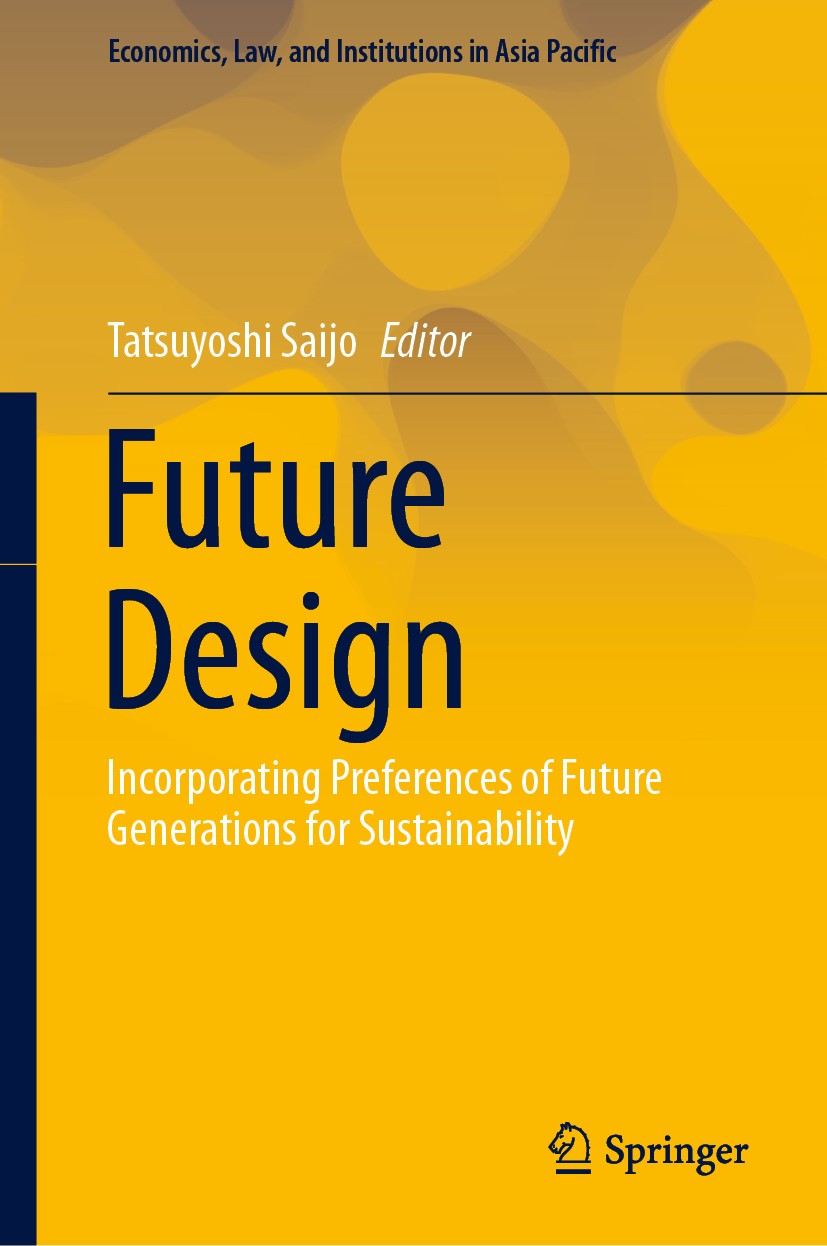| 书目名称 | Future Design | | 副标题 | Incorporating Prefer | | 编辑 | Tatsuyoshi Saijo | | 视频video | http://file.papertrans.cn/352/351008/351008.mp4 | | 概述 | Proposes a new “Future Design” framework to address current policies that are based on markets and democracy and do not consider future generations.Demonstrates that “imaginary” future generations con | | 丛书名称 | Economics, Law, and Institutions in Asia Pacific | | 图书封面 |  | | 描述 | .This book discusses imaginary future generations and how current decision-making will influence those future generations. Markets and democracies focus on the present and therefore tend to make us forget that we are living in the present, with ancestors preceding and descendants succeeding us. Markets are excellent devices to equate supply and demand in the short term, but not for allocating resources between current and future generations, since future generations do not exist yet. Democracy is also not “applicable” for future generations, since citizens vote for candidates who will serve members of their, i.e., the current, generation. In order to overcome these shortcomings, the authors discusses imaginary future generations and future ministries in the context of current decision-making in fields such as the environment, urban management, forestry, water management, and finance. The idea of imaginary future generations comes from the Native American Iroquois, who had strong norms that compelled them to incorporate the interests of people seven generations ahead when making decisions. . | | 出版日期 | Book 2020 | | 关键词 | Future Design; Sustainability; Deliberation; Future Generations; Markets and Democracy; Ministry of the F | | 版次 | 1 | | doi | https://doi.org/10.1007/978-981-15-5407-0 | | isbn_softcover | 978-981-15-5409-4 | | isbn_ebook | 978-981-15-5407-0Series ISSN 2199-8620 Series E-ISSN 2199-8639 | | issn_series | 2199-8620 | | copyright | Springer Nature Singapore Pte Ltd. 2020 |
The information of publication is updating

|
|
 |Archiver|手机版|小黑屋|
派博传思国际
( 京公网安备110108008328)
GMT+8, 2026-2-10 00:24
|Archiver|手机版|小黑屋|
派博传思国际
( 京公网安备110108008328)
GMT+8, 2026-2-10 00:24


